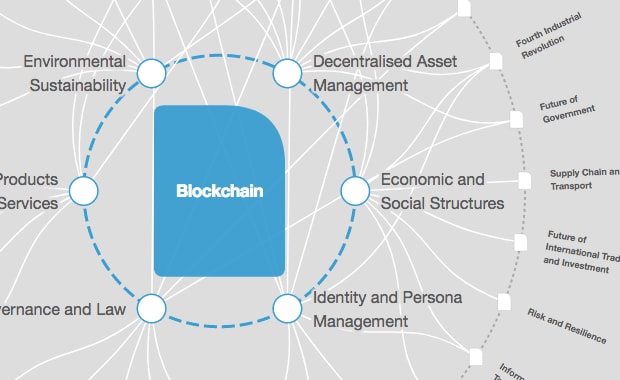Venezuela is launching an oil-backed cryptocurrency

Venezuela is going to create a cryptocurrency and will back it with oil, gas, gold and diamond reserves. Image: REUTERS/Marco Bello

Get involved with our crowdsourced digital platform to deliver impact at scale
Stay up to date:
Blockchain
Venezuelan President Nicolas Maduro looked to the world of digital currency to circumvent U.S.-led financial sanctions, announcing on Sunday the launch of the “petro” backed by oil reserves to shore up a collapsed economy.
The leftist leader offered few specifics about the currency launch or how the struggling OPEC member would pull off such a feat, but he declared to cheers that “the 21st century has arrived!”
“Venezuela will create a cryptocurrency,” backed by oil, gas, gold and diamond reserves, Maduro said in his regular Sunday televised broadcast, a five-hour showcase of Christmas songs and dancing.
The petro, he said, would help Venezuela “advance in issues of monetary sovereignty, to make financial transactions and overcome the financial blockade.”

Opposition leaders derided the announcement, which they said needed congressional approval, and some cast doubt on whether the digital currency would ever see the light of day in the midst of turmoil. The real currency, the bolivar, is in freefall, and the country is sorely lacking in basic needs like food and medicine.
Still, the announcement highlights how sanctions enacted this year by U.S. President Donald Trump’s administration are hurting Venezuela’s ability to move money through international banks.
Washington has levied sanctions against Venezuelan officials, PDVSA executives and the country’s debt issuance.
Sources say compliance departments are scrutinizing transactions linked to Venezuela, which has slowed some bond payments and complicated certain oil exports.
Maduro’s pivot away from the U.S. dollar comes after the recent spectacular rise of bitcoin, which has been fueled by signs that the digital currency is slowly gaining traction in the mainstream investment world.
The announcement bewildered some followers of cryptocurrencies, which typically are not backed by any government or central banks. Ironically, Venezuela’s currency controls in recent years have spurred a bitcoin fad among tech-savvy Venezuelans looking to bypass controls to obtain dollars or make internet purchases.
‘No Credibility,’ Opposition Says
Maduro’s government has a poor track record in monetary policy.
Currency controls and excessive money printing have led to a 57 percent depreciation of the bolivar against the dollar in the last month alone on the widely used black market. That has dragged down the monthly minimum wage to a mere $4.30.
For the millions of Venezuelans plunged into poverty and struggling to eat three meals a day, Maduro’s announcement is unlikely to bring any immediate relief.
Economists and opposition leaders say Maduro, a former bus driver and union leader, has recklessly refused to overhaul Venezuela’s controls and stem the economic meltdown.
He could now be seeking to pay bondholders and foreign creditors in the currency amid a plan to restructure the country’s major debt burden, opposition leaders said, but the plan is likely to flop.
“It’s Maduro being a clown. This has no credibility,” opposition lawmaker and economist Angel Alvarado told Reuters.
“I see no future in this,” added fellow opposition legislator Jose Guerra.
Maduro says he is trying to combat a Washington-backed conspiracy to sabotage his government and end socialism in Latin America. On Sunday he said Venezuela was facing a financial “world war.”
Don't miss any update on this topic
Create a free account and access your personalized content collection with our latest publications and analyses.
License and Republishing
World Economic Forum articles may be republished in accordance with the Creative Commons Attribution-NonCommercial-NoDerivatives 4.0 International Public License, and in accordance with our Terms of Use.
The views expressed in this article are those of the author alone and not the World Economic Forum.
Related topics:
The Agenda Weekly
A weekly update of the most important issues driving the global agenda
You can unsubscribe at any time using the link in our emails. For more details, review our privacy policy.
More on BlockchainSee all
Scott Doughman
December 5, 2023
Shawn Dej and Sandra Waliczek
October 19, 2023
Scott Doughman
September 22, 2023







